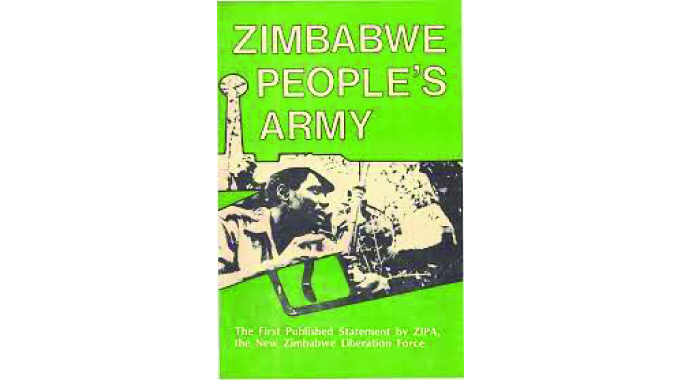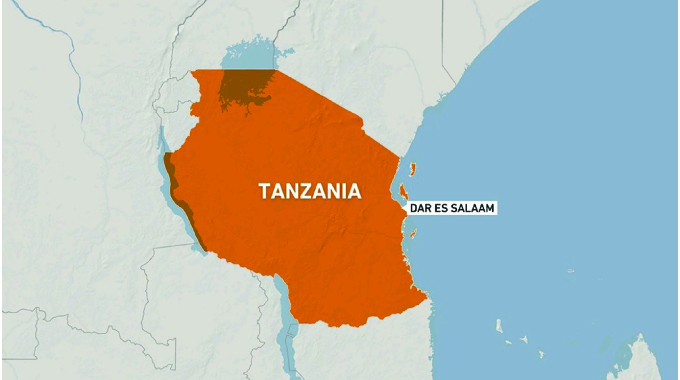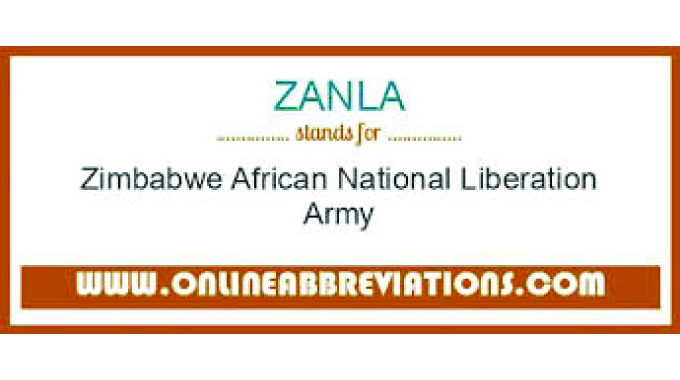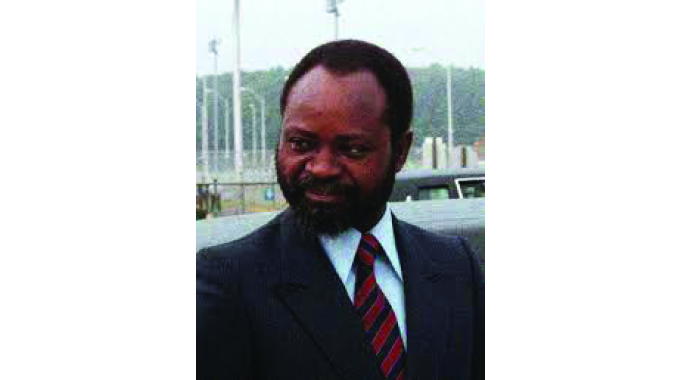
The Sunday News

WE continue our interview with former ZPRA commander for the Southern Front, Cde Irvine Khulekani Sibhona.
Cde Sibhona who is now based in the United Kingdom is a published author having written his war memoirs.
Last week the veteran freedom fighter in an interview with our Assistant Editor Mkhululi Sibanda (MS) spoke about his deployment to Mozambique to operate under the Zimbabwe People’s Army (Zipa), an amalgamation of ZPRA and Zanla forces.

Zimbabwe People’s Army (Zipa)
Last week Cde Sibhona ended his narration by speaking about their arrival in Mozambique.
He picks the conversation from there. Below are excerpts of the interview.
MS: You were talking about your arrival in Mozambique and that you were still trying to find your feet there.
Let’s resume the conversation from there.
Cde Sibhona: I was saying the whole situation was traumatising to us.
Then there were people like Froliz there, the people who had broken away from Zapu with Chikerema.
They refused to get into the Zanla camps ad chose to base outside.
From our side we expected to see a ZPRA commander but they were nowhere in sight.
That was the first mistake.
If they had been there they had gone past those camps.
There was no synchronisation of the situation as some ZPRA troops had flown from the Soviet Union to Dar es Saalm en-route to Maputo while others came from Lusaka.
So there was no specific arrangement for us to fall under our commanders first, so that there could be this formation or that formation with the agreement of our own commanders.
There was nothing to be honest, just one meeting after another which to me did not make sense at all.
Therefore, for two days we were having meetings with Frelimo in Tete.
A few days later they brought some trucks to ship us as they said we were opening a new front, Gaza.
At that point in time there were still others in different camps for instance, Nyamupingidza (John), Dandi, Jacob who were in Tembwe.
Some of our colleagues in ZPRA were still in Tembwe, which, however, was not too far away from where we were in Tete.
Despite the talk of deployment, there was still no headway.
ZPRA commanders were not at those camps.
What happened was that the soldiers came in before the commanders arrived, so after that is when they started deploying the commanders to catch up with the situation.
By then Zanla had been ahead of the situation, they had said 1,2,3,4,5, take the weapons and the troops were gone.
MS: Don’t you think the ZPRA commanders were outsmarted?
Cde Sibhona: I can’t blame the ZPRA commanders but politicians whom one could say were managing this situation called Zipa.

Dar es Salaam
If you look at former Vice-President, Cde Report Mphoko who was in the Zipa High Command as Chief of Logistics who was supposed to arm us probably, he was in Dar es Salaam.
He was not on the ground.
MS: But were you given weapons?
Cde Sibhona: No.
This is a funny story.
When we were moved from Tete Province to a new area, Xai Xai in trucks we were unarmed.
We had no weapons but just nicely kitted in military attire, the Russian rice camouflage.
However, Zanla was armed.
Suddenly we had this unfair narrative that ZPRA did not want to fight, which was just propaganda.
From the ZPRA side those who were given weapons were comrades who had been fitted into the Zanla dominated units and those guys were people like Nyamupingidza, Dandi, Sibuko and so on.
MS: How many were you?
Cde Sibhona: When we got into Mozambique in my group we were 200, but by that time we could have been a little bit fewer because others had remained in different camps like Tembwe and Chimoi.
So in individual camps there were few ZPRA cadres here and there but the bulk of the ZPRA forces were in Gaza.
I would tell you the reasons why because when our guys arrived in Maputo they were quickly shifted with the next nearest station being Gaza Province.
The rest of them like Magarasadza, Gutu, Nyamupingidza, in fact most people found themselves in Gaza Province because they had come with groups who were either from the Soviet Union or from Lusaka.
Those were the groups that were posted to Gaza.
But the people who moved up north from Maputo were the commanders, the command element people like Mazinyane, Njenjema, Joseph Zwangami Dube (JZ) who had been in Cuba, and Enoch Tshangane (late Jevan Maseko).
But when they got into the camps they found few ZPRAs that were isolated.
That situation called for them to take their own initiative to survive or otherwise.

Zimbabwe African National Liberation Army
MS: People always look at ZPRA and Zanla with tribal lenses at times, which is unfortunate.
So when you guys left Zipa, I am told there are some ZPRAs who remained there, does it mean it was tribal motivated.
Cde Sibhona: You know in ZPRA the tribal thing had never been an issue at all.
Everybody was the same no matter where you came from.
When we left Mozambique it was because we realised that things were not working under Zipa, we left as ZPRA not as Ndebele or Shona.
Shona speaking comrades such as Magarasadza and Gutu left as Zimbabweans first and ZPRA last because they were not happy with the situation that was obtaining on the ground.
MS: While still on the issue of tribalism during the struggle there is talk that Kalangas were favoured at the expense of other ethnic groups in ZPRA, may you respond to that.
Cde Sibhona: That is unfounded. If you look at the early senior commanders in ZPRA, yes, they came from Kalanga speaking districts, for instance your home area of Kezi or Matobo where Zwangami came from.
Then from the neighbouring districts of Mangwe and Bulilima we had the Nleyas (Stanley Gagisa and Tjile), Jack Mpofu and so on, people who occupied senior ranks.
However, that does not mean they were the first, some of the first cadres were recruited from Zambia, oMangena labo Masuku (Lookout).
With people from Plumtree it had also to do with the geographical location as these three Kalanga speaking districts I have mentioned above share the border with Botswana.
So it was very easy for youngsters from these areas to go across and that applied to women as well.
The same applied to areas like Gwanda and Beitbridge later on.
However, it was not easy, for example, for a girl coming from Nkayi or Lupane to cut across the country and cross into Botswana.
That is why we had fewer women combatants from areas as Nkayi and Lupane, it was purely a matter of proximity to the border.
The other issue was that in Bulilima and Tsholotsho villagers had been exposed to the joint ZPRA/Umkhonto We Sizwe Wankie Campaign of 1967.
People had seen the war happening in their own villages for example in the Thekwane area.
That had great influence on the people, it motivated the young people to go and join the war.
They were affected and inspired by the war.
As for Beitbridge the motivation might have come when they got into contact with guerillas who were passing through on their way to Botswana from Mozambique after the collapse of Zipa.
MS: When you went back to Zambia after Zipa where were you deployed?
Cde Sibhona: Before we come to that I think we need to start with Mozambique, how we came out of there.
That is the interesting part.

Samora Machel
When we came out of Mozambique it was simply because this man called Mazinyane (Abel) had said unsavoury things to the President of Mozambique, Samora Machel during his meeting with the commanders.
That is what happened if he had never told you.
Samora took his hat and left.
That is when Machel said Zapu does not want to fight.
MS: What had Mazinyane said?
Cde Sibhona: He had sarcastically asked why it seemed the nationalists were being thrown out, meaning politicians from both Zapu and Zanu.
President Machel was not amused.
To make the situation worse there were incidents which actually happened that also did not amuse Machel as well.
One of them involved Mangena’s bodyguard, Funny whom I knew very well and was my friend.
Funny had trained ahead of us.
He is the one who discovered me because later on I was arrested and kept somewhere with Sipho Mangena who became a medical doctor after Independence and Gruscha.
We were incarcerated in prison and kept without clothes for three months.
The period we are talking about is three months, between January and March. During that period ZPRA had not fired a single shot.
MS: Where were the troops?
Cde Sibhona: All the troops had been sent to the front but without weapons.
I found a comrade called Malaba (Kelly) seated with the troops at a place called Khombomunwe near Limpopo River with a group that had people like Thatha and Gadaffi.
There were many all doing nothing, Rhodesians could have just grabbed them by the neck.
They were spending their time playing cards.
That is when Mangena decided we move out of Mozambique.
MS: You spoke about other incidents that angered President Machel involving Mangena’s bodyguard.
Take us through that.
Cde Sibhona: Funny, the bodyguard aggravated the situation by running away from Mangena.
You know there were few women in Maputo as some sex workers who used to operate there during the colonial government had been rounded up and sent to some farm.
However, some comrades were lucky to get in touch with women because of their proximity to the leadership.
So Funny having gone there with Mangena ran away and went and shot at this woman who had been his girlfriend.
She was a nurse and had decided to end their relationship.
However, he did not kill her, he scratched her here and there.
Funny, armed with a pistol chased after her around the hospital in front of terrified patients.
It was as if he was counting as when he was left with one bullet out of nine, he turned the gun on himself and he was gone.
That made the situation worse and President Machel was angry.
That was coming after that meeting where President Machel had left the Zipa command element stunned.
He was so furious, then some ZPRAs were arrested including myself.
To be continued next week with Cde Sibhona bringing up the issue of Nikita Mangena whom he described as a “marked man” by the time of his death.



